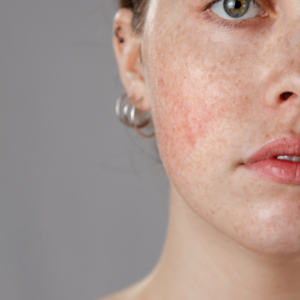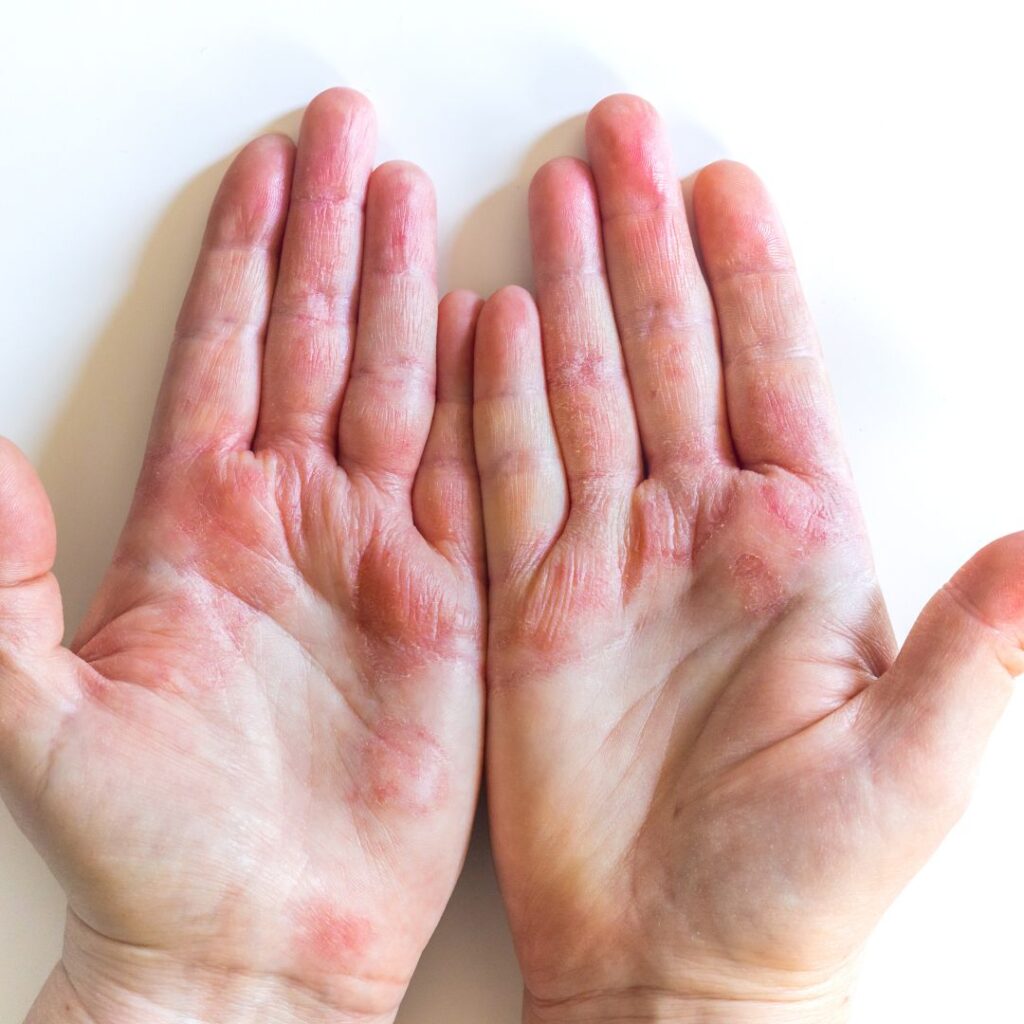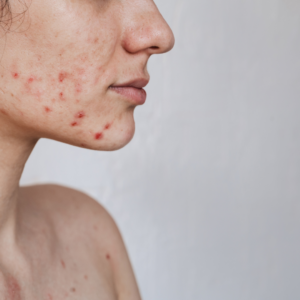
Rosacea Awareness Month: Signs, Symptoms & Treatment Options
Discover a youthful lift without surgery. Learn how our thread lift at Bryn Mawr Dermatology can rejuvenate your appearance.
Did you know that eczema affects over 31 million Americans? This common skin condition can impact the quality of life for both children and adults. Eczema, also known as atopic dermatitis, is a chronic condition that often flares up in response to various triggers, leaving the skin red, itchy, and inflamed.
In this article, we will explore what it is, the common symptoms, potential causes, and the best treatment options available. We’ll also provide tips on managing flare-ups and discuss when to see a dermatologist. By the end, you’ll have a deeper understanding and how to manage it effectively. For more information on more treatments, visit here.
While this article spells out some important information about Eczema, we highly recommend you read the full article, here are the key points we will focus on:

Eczema is a skin condition characterized by inflamed, irritated skin that can flare up in response to various triggers. While the exact cause is not fully known, it is thought to be linked to both genetic predisposition and environmental factors.
Several factors contribute to the development, including:
While eczema is chronic, understanding its causes can help you manage it more effectively and reduce flare-ups.
Eczema symptoms can vary from person to person, but certain signs are common across most cases. Recognizing these symptoms early can help in managing the condition more effectively.
Some of the most frequent symptoms include:
According to the National Eczema Association, approximately 10-20% of children and 1-3% of adults in the U.S. suffer from eczema, showing just how widespread this condition is. Early diagnosis and treatment are essential in preventing the worsening of these symptoms.
Eczema can be managed through various treatment options, depending on the severity of the condition and individual needs. Treatments aim to reduce symptoms, prevent flare-ups, and repair the skin barrier.
Here are some of the most effective treatment options:
Your dermatologist will recommend a treatment plan based on the severity and your specific needs. For a personalized treatment plan, visit Bryn Mawr Dermatology.
While eczema can affect people of all ages, certain factors can increase the likelihood of developing the condition.
People more likely to develop it include:
Eczema flare-ups can be caused by everyday environmental and lifestyle factors, even if your symptoms are usually well-controlled.
Common triggers include:
Changes in weather: Extreme hot or cold conditions can irritate the skin, leading to flare-ups.
If your eczema symptoms persist despite using over-the-counter treatments or begin to worsen, it’s important to consult a dermatologist. Signs of infection, such as swelling or oozing, also require medical attention. Additionally, if eczema is affecting your sleep or daily life due to severe itching or discomfort, seeking professional help can lead to better management and relief. A dermatologist can develop a personalized treatment plan to help control your symptoms and prevent future flare-ups.
Managing eczema effectively requires expert care, and at Bryn Mawr Dermatology, we offer personalized treatment plans tailored to your specific needs. Whether you’re experiencing mild flare-ups or dealing with more severe symptoms, our experienced dermatologists will work with you to create a strategy that addresses your unique concerns.
Bryn Mawr Dermatology stands out by offering a patient-centered approach, combining cutting-edge treatments with compassionate care. We take the time to understand your lifestyle, identify triggers, and recommend the most effective therapies to control your eczema, whether that involves prescription medications, phototherapy, or personalized skincare routines. Our practice provides a welcoming environment and utilizes advanced techniques to ensure you receive the highest standard of care.
If you’re ready to take control, schedule a consultation with Bryn Mawr Dermatology today. Call 610-525-7800 to book an appointment with one of our experts and start your journey to healthier skin.

Discover a youthful lift without surgery. Learn how our thread lift at Bryn Mawr Dermatology can rejuvenate your appearance.

Discover a youthful lift without surgery. Learn how our thread lift at Bryn Mawr Dermatology can rejuvenate your appearance.

Discover a youthful lift without surgery. Learn how our thread lift at Bryn Mawr Dermatology can rejuvenate your appearance.

Struggling with acne scars? Discover the best dermatologist-approved treatments for smoother, clearer skin.

Looking to get your body summer-ready? Explore CoolTone and other expert treatments at Bryn Mawr Dermatology. Book your consultation today!

Looking to get your body summer-ready? Explore CoolTone and other expert treatments at Bryn Mawr Dermatology. Book your consultation today!

By: Bryn Mawr Dermatology, Published: December 17, 2024
Medically Reviewed By: Christine Stanko, MD, FAAD –December 14, 2024
For COSMETIC APPOINTMENTS:
For MEDICAL APPOINTMENTS: